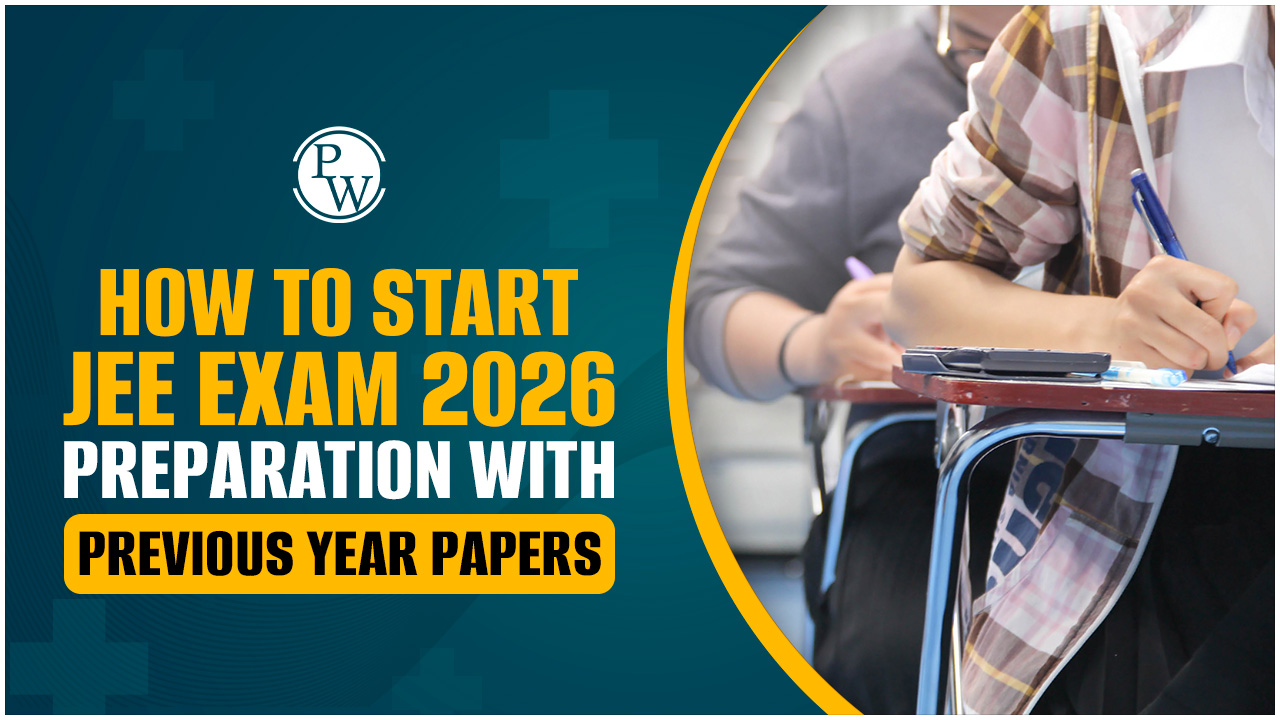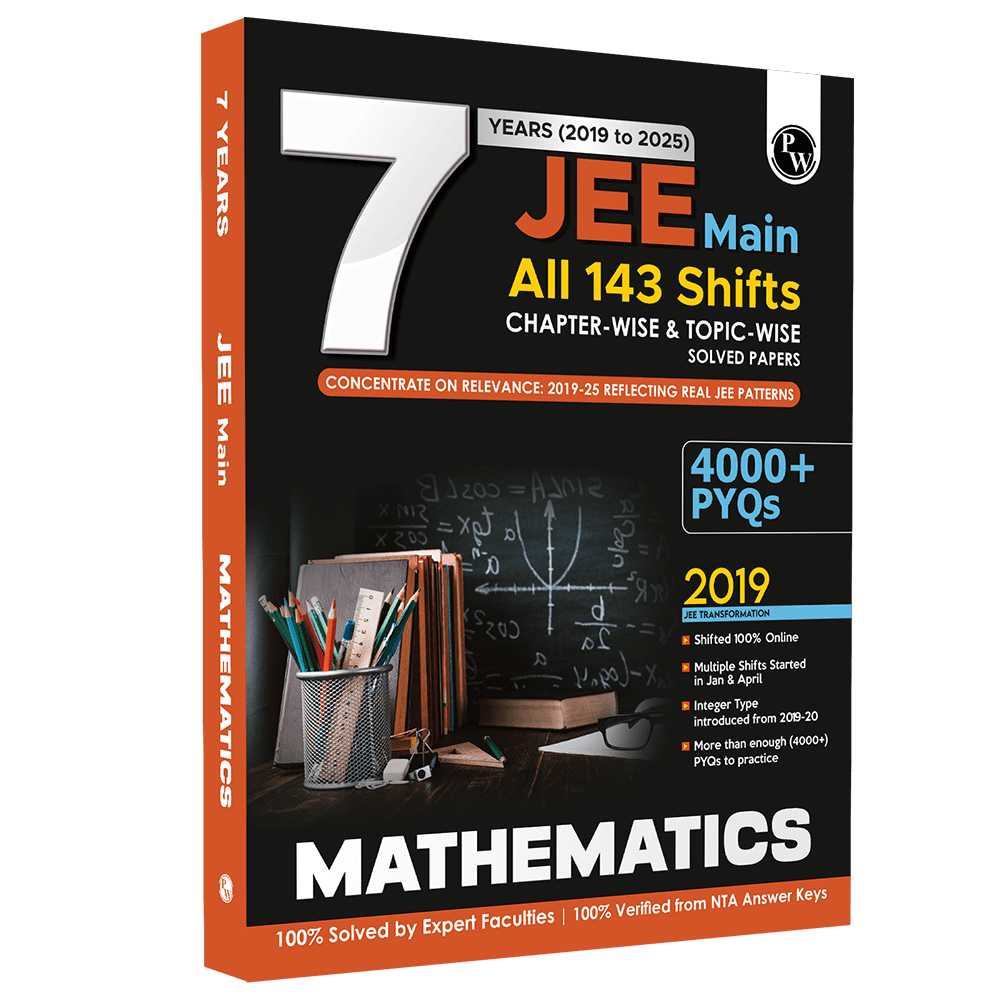How to Start JEE Exam 2026 Preparation with Previous Year Papers?

Joint Entrance Examination (JEE) is an important exam for students who want to become engineers from top colleges in India, like IIT OR NIIT. Preparing for JEE 2026 looks tough at first, but with right books for jee exam, right plan and regular practice, you can make it easy and even enjoyable. The JEE (Joint Entrance Exam) tests your understanding of Physics, Chemistry, and Math. It has two parts: JEE Main and JEE Advanced. To crack it, you need clear concepts, regular practice, and smart strategies. Let us break down how to start your JEE 2026 preparation using JEE Mains previous years' papers and other simple steps.
Reasons to Choose the Right Previous Year Papers Collection
You can understand by solving papers year by year, and get a clear map of what to study more. For example, if you see many algebra problems in old Maths papers, you know to spend more time on algebra now. Every paper shows you where to focus. Over time, these papers will make you feel less nervous and more ready, because you have practiced real exam questions. For serious JEE 2026 preparation, you need reliable study materials. The "JEE Main 7 Years (2019-2025) Physics, Chemistry, Mathematics Combo Set" offers all 143 shifts of online previous years' solved papers. This collection gives you:
-
The most recent exam patterns and questions
-
Chapterwise and topicwise organization of questions
-
Error-free, detailed solutions
-
Coverage of all important topics from Physics, Chemistry, and Mathematics
Using this kind of complete JEE Mains previous year paper collection helps you understand what to expect in the actual exam.
How to Start JEE Exam 2026 Preparation with Previous Year Papers
The actual question is, " How can I prepare myself to crack JEE and get seats in my dream college. The answer is simple with the JEE Mains previous year question paper. We will discuss how you can use JEE Mains PYQs in your preparation for success.
1. JEE Exam Pattern and Syllabus
Before you start solving the JEE Mains question paper, you need to understand what the exam looks like.
-
Subjects Covered: JEE tests you on Physics, Chemistry, and Mathematics.
-
Question Type: Mostly multiple-choice questions (MCQs) and numerical value-based questions.
-
Marking Scheme: You get marks for right answers and lose marks for wrong ones (negative marking).
When you look at the JEE Mains previous year paper, notice how many questions come from each topic. See which chapters are asked more. This will help you know where to focus your energy.
2. Learn the Basics First
Don't jump into solving papers right away. First:
-
Study the basic concepts in each subject
-
Understand formulas and rules
-
Practice simple problems
-
Read your NCERT books well
Once you have a good grip on the basics, you can start using the jee previous year question paper sets.
3. Start Practicing with Previous Year Papers
Now comes the most important step—practice.
Start solving the JEE Mains previous year question paper under exam-like conditions.
-
Set a timer (3 hours).
-
Sit at a desk with no distractions.
-
Solve the full paper as if it’s the real exam.
When you do this, you will:
-
Get used to the exam pattern.
-
Understand which types of questions are asked often.
-
Improve your speed and accuracy.
Tip: Start with recent years' JEE Mains PYQ papers, then move to older ones. For at least the last 7 years of JEE main PYQs you need to have to crack your exam. Books like JEE Main 7 Years (2019 - 2025) are prepared to help you in this ambitious journey.
4. Focus on Chapter-wise PYQs
Instead of solving random questions, it is smarter to solve PYQ JEE mains chapter-wise.
For example, if you are studying "Electrostatics" in Physics, solve only Electrostatics questions from the JEE Mains previous year paper.
This will help you:
-
Master one chapter at a time
-
Know how questions are framed for each topic
-
Notice which concepts are often repeated
The "JEE Main 7 Years (2019 - 2025)" book gives you chapterwise and topicwise PYQs of jee mains, which is perfect for this style of study.
5. Use Error-Free Solutions
The right way is to have accurate solutions. When using resources like the "JEE Main 7 Years" Books:
-
Compare your solutions with the given answers
-
Study the solution methods even for questions you got right
-
Learn alternative approaches to solve the same problem
-
Understand the thinking process behind each solution
This helps you develop multiple problem-solving strategies.
Check Out: JEE Main 7 Years PYQs Combo Book PDF
Creating Your Study Plan With JEE Previous Year Papers
A good study plan is like a road map for your JEE journey. Here's how to make one:
1. Shared Time in the Right Way
Split your study time between:
-
Learning new topics
-
Practicing problems
-
Solving JEE Mains previous year paper sets
-
Reviewing what you've learned
Maybe initially, spend more time learning. As you get closer to the exam, spend more time practicing.
2. Have Weekly Goals
Don't just plan day by day. Have weekly targets like:
-
Complete 2 chapters in Physics
-
Solve 50 Chemistry problems
-
Complete 1 full JEE previous year question paper
Check every Sunday if you met your goals. If not, find out why and fix it.
3. Balance All Subjects
Don't focus too much on one subject. JEE needs you to be good at all three. If you're stronger in Math but weaker in Chemistry, give Chemistry more time, but don't ignore Math.
Focus on Weightage Analysis in JEE Main PYQ
A smart preparation strategy uses weightage analysis from PYQ JEE mains chapter-wise collections:
1. Find High-weitageTopics
Some topics consistently appear in JEE Main:
-
Pay special attention to these high-frequency topics
-
Master them completely
-
Solve all available questions on these topics
2. Don't leave Any Topic
Even low-weightage topics can surprise you:
-
Ensure basic understanding of all topics
-
At least know the fundamental concepts
-
Be ready for any surprise questions
3. Do a Whole chapter Analysis
Divide your study time based on topic weightage:
-
More time for high-weightage topics
-
Sufficient time for medium-weightage topics
-
Basic coverage for low-weightage topics
This ensures you're prepared for the entire syllabus.
Also Check, JEE Question Banks
Recommended JEE Previous year question paper book
One great resource is the JEE Main 7 Years (2019–2025) Physics, Chemistry, Mathematics Combo Set of 3 Books. This book is for JEE Main prep using old exam papers. It covers all JEE Main papers from 2019 to 2025 (143 shifts) chapterwise. Each question from every jee mains previous year paper is organized by topic.
Some Unique Features in JEE Main 7 Years Book
Latest PYQ practice: It covers the most recent JEE Main exams (2019–2025). You get to practice with the newest questions and exam formats.
Chapterwise and topicwise: Each book groups questions by chapter. All questions from one chapter are together. This makes it easy to study one chapter at a time (exactly a pyq jee mains chapter wise approach).
Chapter Weightage analysis: Since it's organized by year and chapter, you can see how many questions came from each chapter. This helps you know which chapters are most important.
Clear solutions: The set provides detailed solutions for every question. These are checked by experts to be accurate and easy to understand. You can trust the answers (just as BYJU advises using reliable solutions).
Using this book can save a lot of time. Instead of searching for each exam online, the book gives you everything in one place.
Starting JEE 2026 preparation with JEE Mains previous year papers is one of the smartest strategies. Using a comprehensive resource like the "JEE Main 7 Years (2019-2025) Physics, Chemistry, Mathematics Combo Set" gives you access to all 143 shifts of previous papers, organized by chapters and topics for efficient study.
Remember, JEE preparation is a marathon, not a sprint, so to win this you need to be a tortoise not a rabbit. Stay consistent, use the PYQs of JEE mains regularly, and balance your study time wisely. With dedication and smart work, you can crack the JEE exam and get into your dream college.
Read More: Time Table for JEE Preparation 2025
JEE Main Previous Year Papers FAQs
1. When should I start solving JEE Main previous year's question papers?
It's best to start solving JEE Main previous year papers after you've covered the basic concepts of a topic. Don't rush into solving papers before understanding the fundamentals. Ideally, begin with topic-wise practice from previous papers about 12-15 months before your exam, and move to full-length papers about 6-8 months before the exam.
2. Should I focus on chapter-wise previous year questions or full-length papers?
Both approaches are important. Start with chapter-wise practice to strengthen your concepts in each topic. Once you've covered most topics, move to full-length papers to build exam temperament and time management skills. The chapter-wise approach helps in targeted learning, while full papers simulate actual exam conditions.
3. Are the 7-year-old JEE papers still relevant for JEE 2026?
Yes, papers from 2019-2025 are highly relevant for JEE 2026 preparation. While exact questions won't repeat, the concepts, difficulty level, and pattern will remain similar. The fundamental concepts tested in JEE don't change drastically from year to year, making previous papers valuable practice resources.
4. Should I time myself while solving previous year's papers?
Initially, focus on accuracy rather than speed. Solve questions without time constraints to build concept clarity. As you get more comfortable, introduce timed practice. In the last 3-4 months before the exam, always solve full papers under timed conditions to build speed and exam temperament.











